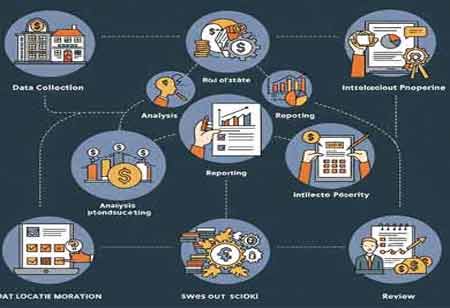CLOSE
Specials
- RegTech Europe
- Financial Risk Management APAC
- Investment Banking APAC
- Corporate Advisory APAC
- Regtech APAC
- Escrow Services
- Digital Banking Latam
- Trading Solutions APAC
- Treasury Management Europe
- CPA Firms Canada
- Financial Risk Management Europe
- Mortgage Broker
- Financial Licensing Europe
- RIA Advisory Europe
- FinTech Canada
- Financial Asset Management APAC
- Investment Banking Canada
- Payment Solution
- Lending Mangment Latam
- Payment Solution Europe
- Broker Dealer Firms Canada
- Alternative Investments Canada
- Financial Fraud
- Investment Management Latam
- Financial Health Europe
- Lending mangment
- Financial Marketing
- Proprietary Trading Europe
- Wealth Management
- FinTech
- Financial Brokerage Firm APAC
- Investment Advisory Europe
- Investment Advisory APAC
- Wealth Management MENA
- Claim Adjusting
- Claim Adjusting APAC
- Mergers and Acquisitions Consulting APAC
- Equipment Financing
- CPA Firms
- Mergers and Acquisitions Consulting Canada
- Investment Services
- Valuation Services Canada
- Wealth Management APAC
- Broker Dealer Firms
- Debt Collection Agencies
- Mergers and Acquisitions Consulting
- FinTech Europe
- Fintech Latam
- Financial Planning / Retirement
- Investment Management
- Financial Compliance
- Digital Banking Europe
- CFO Services
- Debt Collection Agencies Europe
- Wealth Management Europe
- Mergers and Acquisitions Consulting Europe
- Financial Restructuring Europe
- Financial Portfolio Management Canada
- Business Loan
- Payment and Card Latam
- Wealth Management Latam
- Mergers and Acquisitions Consulting Latam
- Tax Advisory Canada
- Trading Solutions Europe
- Alternative Investments
- Digital Insurance Europe
- Investment Services Latam
Weekly Brief
×Be first to read the latest tech news, Industry Leader's Insights, and CIO interviews of medium and large enterprises exclusively from Financial Services Review
Thank you for Subscribing to Financial Services Review Weekly Brief
Invoice Factoring in a Nutshell
Invoice factoring allows you to receive payments quickly rather than waiting for them to arrive (possibly after extensive chasing on your behalf).

By
Financial Services Review | Tuesday, January 10, 2023
Stay ahead of the industry with exclusive feature stories on the top companies, expert insights and the latest news delivered straight to your inbox. Subscribe today.
An invoice factoring arrangement is a type of invoice finance in which a third party purchases some or all of a company's outstanding invoices in order to improve revenue stability and cash flow. Most of the invoiced amount will be paid to you immediately by a factoring company, and then the customer will pay you directly.
Fremont, CA: Invoice factoring allows you to receive payments quickly rather than waiting for them to arrive (possibly after extensive chasing on your behalf). Planning and forecasting are improved, and opportunities can be taken advantage of that would otherwise be unattainable.
Check Out This : Manage CFO
What is Factoring?
Whether in part or in full, invoice factoring involves selling control of your receivables. Here's how it works:
• Your customers receive normal goods and services from you.
• You invoice your customers for those services or goods.
• A factoring company purchases the invoices you raised. After confirming that the invoices are valid, the factoring company pays you 80-90% of the invoiced amount immediately.
• Your customers pay the factoring company directly. If necessary, factoring companies pursue invoice payments.
• Once the factoring company has received the invoice payment in full, they will pay you the remaining balance - minus their fee.
Advantages of Invoice Factoring
• Improved and more predictable cash flow - Invoice factoring allows you to receive payments quickly rather than waiting for them to arrive (possibly after extensive chasing on your behalf). Planning and forecasting are improved, and opportunities can be taken advantage of that would otherwise be unattainable.
• Better chance of your business surviving - Your business has a better chance of surviving when there is better cash flow. Using invoice factoring wisely can keep your business healthy, and many businesses fail because of poor cash flow.
Disadvantages of Factoring
• Small companies can't benefit from invoice factoring - For businesses with just a few main customers, invoice factoring wouldn't be a good option. The factoring industry prefers to spread its risks as widely as possible. The company tries to avoid concentrating invoices on a few clients.
• Requires a big commitment - Although selective factoring or spot factoring is sometimes possible (depending on your situation), most factoring organizations require you to hand over the majority of your receivables. It is also possible that you will be asked to sign a long-term contract, which might last for two years or more. Invoice factoring is necessary for them, but it also means that you cannot dip in and out of it at any time. This is a major business decision.
Costs more if your customers are risky - Factoring companies try to determine how likely it is that customers will default on their payments or not pay. Your customers will be carefully assessed by them. You or your customers will be charged high fees if they believe you are at high risk.

Copyright © 2025 Financial Services Review. All rights reserved





